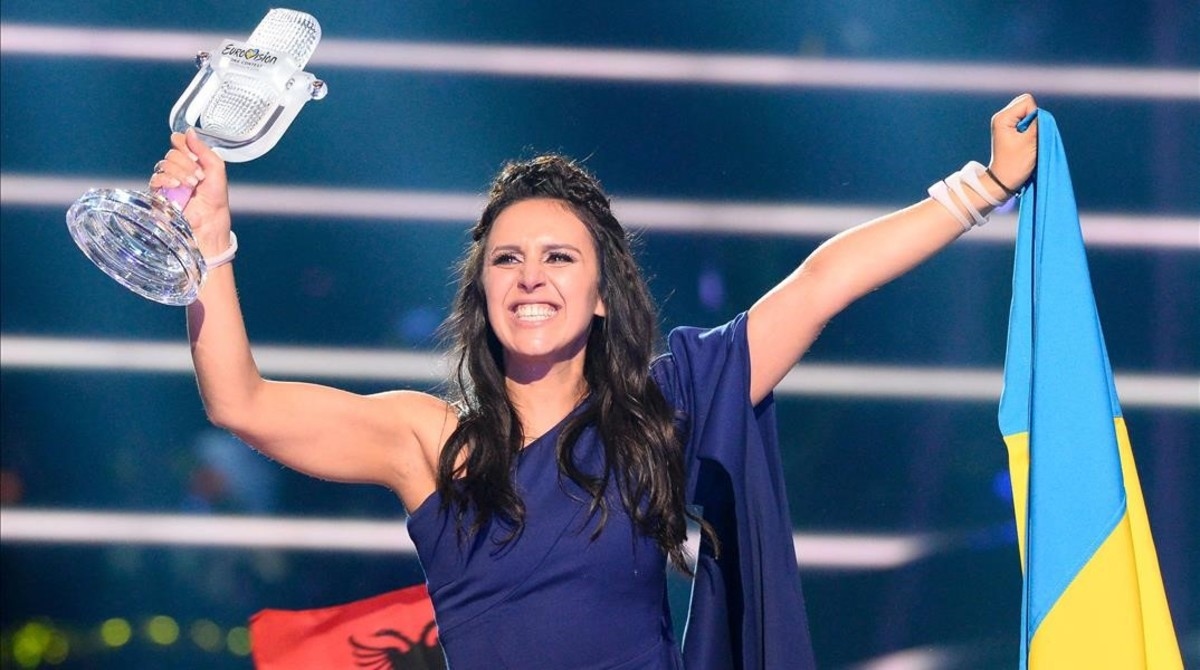The 2016 Eurovision Song Contest winner is topping the charts on a different list, which is a wanted list, by Russia.
Winner or Loser?
Russia has added a popular Ukrainian singer who won the Eurovision song contest seven years ago to its wanted list, as Moscow expands its efforts to target cultural figures who have been critical of its invasion of Ukraine.
The singer, known professionally as Jamala, appeared in the Russian Interior Ministry’s wanted database under the name Susana A. Dzhamaladinova. Her name appeared to have been added to the list in October but was publicized in the Russian media on Monday.
A listing in a Russian interior ministry database says she is being sought for violating a criminal law, Russian state news agencies have reported.
Dzhamaladinova, who is of Crimean Tatar descent, won Eurovision with her song 1944. The title refers to the year the Soviet Union deported nearly 200,000 Crimean Tatars from Crimea.
Russia originally protested “1944” being allowed in the competition, claiming it violated rules against political speech on Eurovision, but was later allowed as officials said the song made no specific criticism of Russia or the Soviet Union.
Jamala dedicated the song to the Crimean Tatars who were deported in the 1940s after they were accused of cooperating with Nazi Germany. Her ancestors were deported to Central Asia, where she was born.
“No matter where I am, the first priority for me is to remind that foreigners came to my house to kill and mutilate life, to destroy and rewrite my culture,” Jamala told President Volodymyr Zelensky of Ukraine in Nov. 2022. “It happened in 1944, and then in 2014, and now again,” she said. “Now everyone in Ukraine understands that this can happen to anyone, if evil is not stopped and brought to justice for crime.”
In February and March 2014, Russia invaded the Crimean Peninsula, part of Ukraine, and then annexed it. This took place in the relative power vacuum immediately following the Revolution of Dignity and was the first act of the wider Russo-Ukrainian War.
Ukraine has been using Crimean Tatar heritage to counterbalance Russian cultural domination of the region, which became part of the Russian empire after it was conquered in the 18th century. In 1954, the peninsula was transferred from Russian to Ukrainian authority within the Soviet Union.
The targeting of Jamala appears to be part of a campaign by Moscow to silence activists who refuse to accept its rule of Crimea and who oppose the war against Ukraine — both within Russia and beyond its borders.
The action is likely to have little more than a symbolic impact on the singer, who lives in Ukraine. Jamala, who is currently in Australia, reacted to the news by posting a picture of herself in front of the Sydney Opera House on Instagram with a face-palm emoji superimposed.


